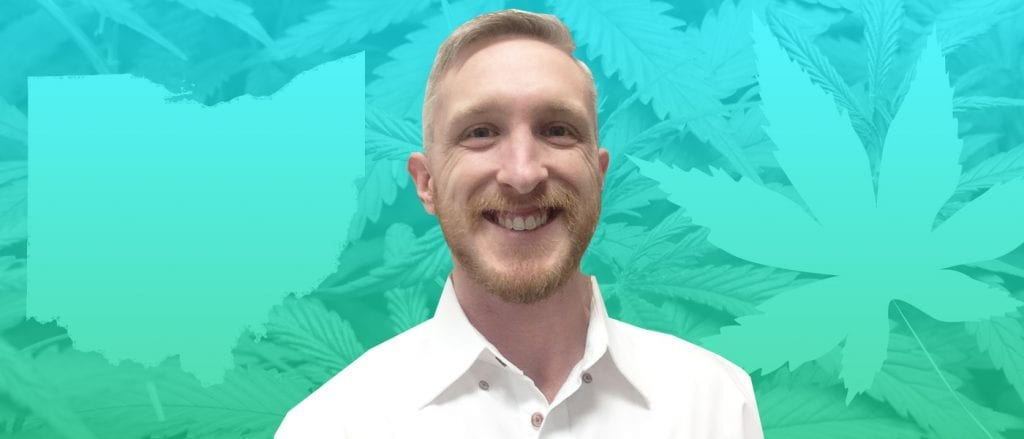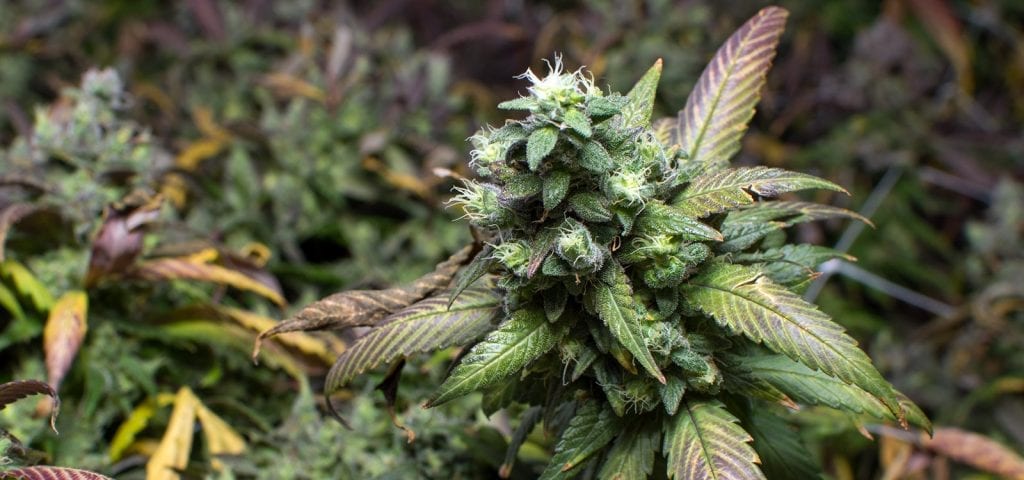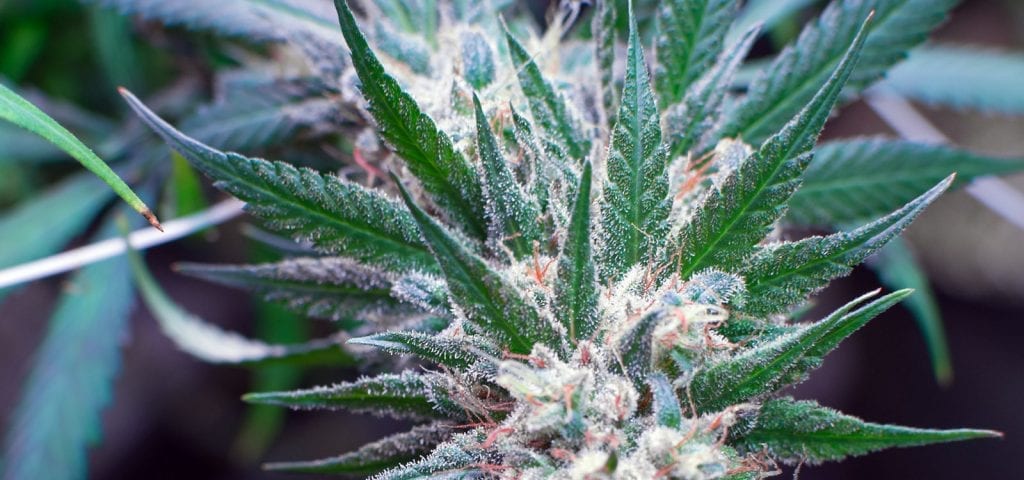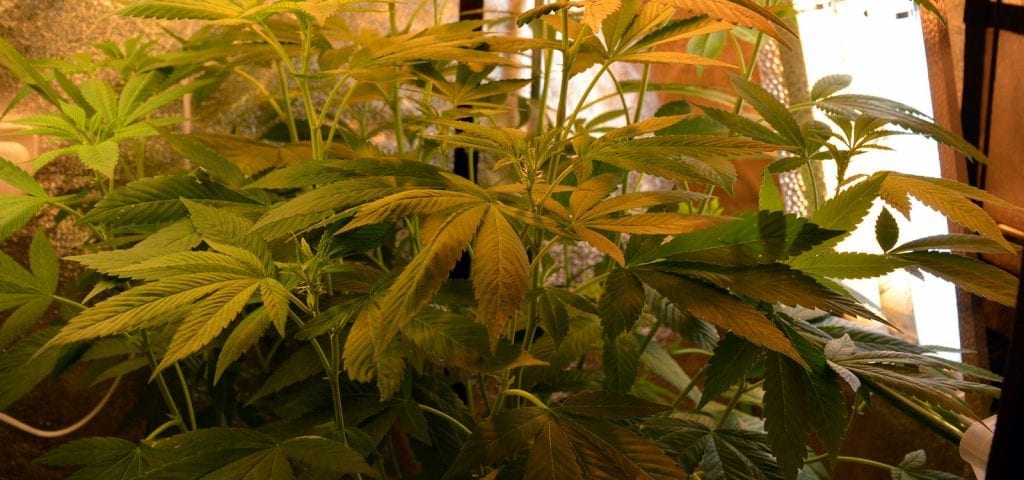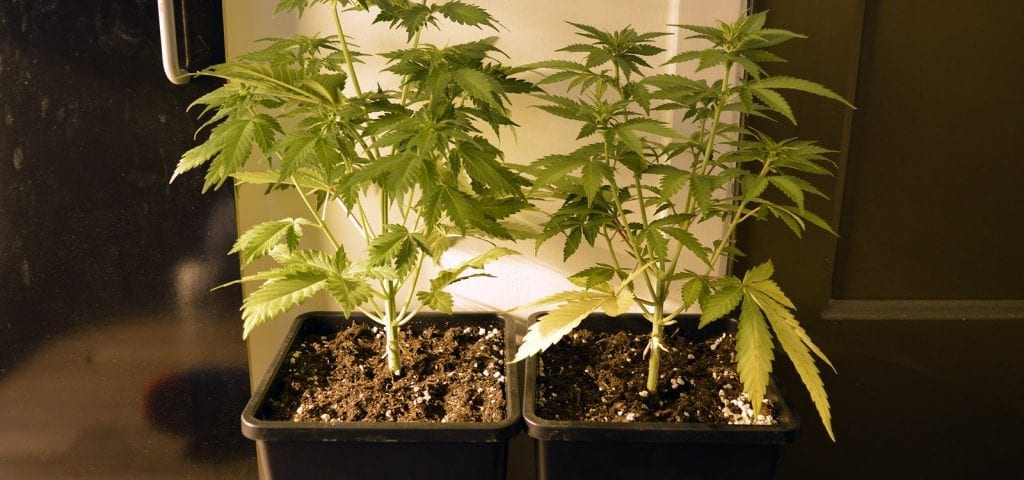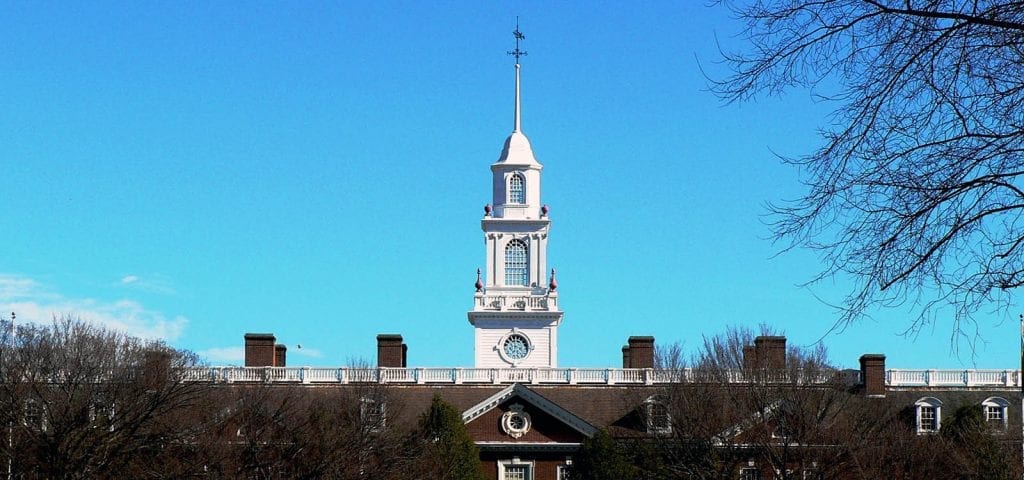Richard Pine is the founder and CEO of Cleveland Cannabis College, an institution in Independence, Ohio that offers quality, in-depth schooling on the cannabis plant. Classes at the Cleveland Cannabis College cover the plant’s historical significance, its many medical properties, the culture of cannabis and the legalization movement, as well as actual cultivation and preparation processes.
In this episode of the Ganjapreneur.com podcast, Richard joins our podcast host TG Branfalt for a discussion about the college’s founding, available curriculum, and Ohio’s medical cannabis roll out. Richard also shares what it’s like being a young (28) entrepreneur in the nascent cannabis space and he talks about transitioning from the retail investment industry to cannabis.
You can listen to the episode below or keep scrolling down to read a full transcript of the interview.
Subscribe to the Ganjapreneur podcast on iTunes, Stitcher, SoundCloud or Google Play.
Listen to the podcast:
Read the transcript:
TG Branfalt: Hey there. I’m TG Branfalt, and you are listening to the Ganjapreneur.com podcast. The Ganjapreneur.com podcast gives us an opportunity to speak directly with entrepreneurs and experts who are working on the front lines of the industry to normalize cannabis through responsible business, education, and activism. As your host, I will do my best to bring you actionable information to help you plan, grow, and manage your cannabis business.
Today, I’m joined by Richard Pine. He is the founder and CEO of Cleveland Cannabis College. How are you doing today, Richard?
Richard Pine: I’m doing pretty good, Tim. How are you?
TG Branfalt: I’m all right. I’m still a little stunned from Spicer’s comments last week, and we’ll probably get into that a little bit later. But for now, I want to learn more about you, learn more about the college. So let’s start with your background. What did you do before getting involved in the cannabis industry?
Richard Pine: It started off, I graduated college at Kent State University here in Ohio with my degree in entrepreneurship and a minor in marketing, and then shortly after, I moved down to rural Georgia on a small farm, and really focused on my real estate investing career. And then in was House Bill 523 that really decided … had me move back up to Ohio in December of 2016.
TG Branfalt: And you’re like the third person that’s been on this show that has a background in real estate. Why do you think that many people who are involved in that industry end up in the cannabis sector?
Richard Pine: I think it might go kind of both ways. I think that some of the people in the cannabis sector go into real estate for financial reasons, just for being able to claim profits and things like that. And then on the other side, people that started real estate investing, community, go over into cannabis because they have assets that they can, you know get money out of. They have a passive income that is continually coming in so that they can focus on another industry like Cannabis.
TG Branfalt: And so why’d you decide to not only get into the cannabis industry but specifically this education sector that’s emerging nationwide in legal states?
Richard Pine: Well, you know. Ohio’s really setting the bar as far as … At least in my opinion. As far as their legislation and with the requirement in Ohio for documented education with the state for the various different levels of cannabis. So for example, you know the doctors have to have continuing medical education credits to write the recommendations.
Employees at dispensaries and processors have to have documented education with the state. And so, I saw an opportunity because there is no … There’s nowhere you can really go to get an in-depth, really in-depth education in cannabis. And also, with Ohio looking into the research aspect of cannabis is also what really spiked my interest. By a year … Year and a half ago, I was actually in Uganda and Africa looking at legalizing out there, talking with parliament about the possibilities of that just because I wanted … I was passionate about the education and passionate about the research, and that wasn’t being, you know … Available anywhere in the US.
With the laws changing out West and with recreation and the Ohio … You know, getting ready to go into the medical marijuana, I realized that my time and money would be a lot better spent here in the US and that they were moving forward with the ability to educate and possibly do the research. … So I saw that opportunity and the fact that it’s an ancillary business, I don’t have as much of a high startup cost that they’re requiring for the licensing and stuff here in Ohio. It’s a required part of the cannabis industry in Ohio with education. And like I said, there was nowhere else that I could find that did a year, year and a half … course in cannabis.
TG Branfalt: And what was the process like for you to set up the school in Ohio?
Richard Pine: Well, it wasn’t too hard. I had some of the ground work already laid out for my idea of setting up in Africa so we kinda had the basic idea of what I wanted to do. It was just bringing together the different organizations and different people that were very passionate as well about medical marijuana. So to come up with the curriculum and to come up with the educators. So it’s been a lot of networking and a lot of time. A lot of long days of setting this all up.
TG Branfalt: And did you have any trouble finding a place to host it? I know you’re an ancillary business but did you approach any properties or landlords or anything and they were like, “eh, we don’t want this here.”
Richard Pine: Yeah, we had a little bit of push back, but. You know, a lot of these guys, they knew … We were very up front with them, telling them what we wanted to do. And we were pretty specific in the area and what we were looking for and in our price range. And so when we found the location that we’re at, we didn’t really have any issues. The only issue we really had was some of the pictures and the shirts that we had hanging up on our store front were a little controversial, I guess to some people, that they felt offended, so we just worked with management on moving those and covering the windows up. So that there wouldn’t be any issues. But we really just wanted a place that was centrally located, a place that wasn’t too busy but not too rural. And then somewhere that we could expand on. So right now, we’re a little over 2 thousand square foot office and we’re in the process of looking at adding on about another 2 thousand or 21 hundred square feet to our office space come June.
TG Branfalt: And why don’t you tell me about the … You know, we understand the purpose but what are you offering over there at the Cleveland Cannabis College? What are the details of some of these programs?
Richard Pine: Yeah, sure. So … We have an intro class that we require. We require two courses, the intro class and the history class to go any further with us in your education. Obviously because we want a strong foundation, want everybody to be one the same … You know, the same foundation furthering education and be able to have intellectual conversations about medical marijuana with people.
And we don’t focus on just people that want to work in the industry. We also offer our classes to people that are just interested. So patients, possible patients. Also, we recommend that … To get educated before they go out and try this new medication. We’ve had everybody from 18 years old all the way up to 80 years old. I mean, we really don’t … Have a set person we’re looking for, let’s say. And we offer … Right now we’re offering three major certifications. So, in horticulture, one in manufacturing and dispensing, and another with more of a medical background for like, a patient navigator or a caregiver.
TG Branfalt: And so far, what’s the response been like?
Richard Pine: It’s really, really awesome. We opened our doors January first of this year, this building. Our first class was the last weekend in January. We had about 70 to 75 percent attendance. And then we had our grand opening event, the weekend after Valentine’s day. And it was on February 18th. We had … It was called Weed Dating. And we had a panelist, a couple tables set up with panelists and you could go for five minutes to each table and get your questions answered. We had about 150 plus people show up at that event. A lot of news coverage. And that really launched things off.
We had 100 percent attendance at our last class this past weekend on the 25th and 26th of February. We already are 100 percent booked for our March class and have since decided to start with two of the intro classes in April, one of which are already half way filled up. So we’re really happy with the interest, we can’t answer the phones fast enough.
TG Branfalt: How’s tuition compared to other trade schools?
Richard Pine: Well, as far as trade schools go, the price of trade schools really vary. From state to state and from area of interest. So you know, like an automotive … Like an automotive trade school is about 27 hundred, three thousand dollars, I’d say. And then going out there to be like, a vet tech or something, it’s gonna be a bit more. So we’re kinda right down the middle. Our … From one certification it is 52 hundred dollars. And that’s payable, that’s throughout your education. And the new also offer our executive course which is 9 thousand. And that covers your required courses and then the certification for all three areas of study, in horticulture, manufacturing and dispensing and the medical side.
TG Branfalt: And where are you seeing the most interest in your programs? Is it the horticulture side or is it more the dispensing side or?
Richard Pine: Yeah. Right now we’re seeing the most in horticulture.
TG Branfalt: And you mentioned that you’d had a panel at one of your … kind of grand openings. What kind of questions were asked, you know? What was the most prevalent question asked at that panel?
Richard Pine: Let’s see. The number one question is probably how to get into the industry. We had people from all different walks of the industry. From growers to dispensers to neuro-pharmacologists, to talk about how the … how marijuana effects the brain in a neurochemical aspect. We had representatives from Ohio patient network. We had the president of Ohio NORML, the president of Cleveland normal, answering the activism and advocacy questions. But I’d say in general, if you had to put a number one question … What was asked at the panelists was, “how do I get into the medical marijuana industry in Ohio?”
TG Branfalt: So, we’re gonna get into a bit more details on your program. But before we get into that we have to take a short break. I’m TG Branfalt, this is the Ganjapreneur.com podcast.
Commercial: This episode Ganjapreneur.com podcast is made possible by Name.com, a global provider of domain name, web hosting, and email services. Every successful cannabis business needs an online presence, and every successful online presence begins with a domain. From your website to your email address, a good domain is easy for your customers to remember, it looks nice on a business card or billboard, and it reflects the true identity of the project it represents.
It’s important to reserve your domain early on when you are starting your business, as you may find that the .com address for your preferred brand or concept has already been taken. If somebody has already purchased the ideal .com for your business, they might be willing to sell it, but if they aren’t, you may have to get creative with one of the new alternate domain extensions, such as .co, .club, .shop, or even .farm. Reserve your domain name today at Name.com/Ganjapreneur.
If you are a domain name investor or venture capital firm interested in acquiring or advertising premium cannabis domains, go to the Ganjapreneur domain market to browse a wide variety of names, including Strains.com, CannabisMedia.com, MJ.com, and countless others. Discover branding opportunities for your next startup and learn about listing your premium domain names for sale at Ganjapreneur.com/domains. Sponsored by Name.com.
TG Branfalt: Welcome back to the Ganjapreneur.com podcast. I’m your host, TG Branfalt here with Richard Pine. Founder and CEO of Cleveland Cannabis College.
During the break, you had actually mentioned that you’re a young guy. You’re younger than me. 28 years old, you know. How do you think that plays into the whole development of the program, and your approach to the industry?
Richard Pine: Well. You know, having that … I am a big younger does give me the upper hand in the fact that I have the energy and tenacity still to tackle something like this. And when I say this, I don’t joke. It’s seven days a week. So I feel like, that still being young gives me the opportunity to do that.
Also, the medical marijuana industry is something that the younger generation is very … Something that they’re very passionate about. And a lot of us have been growing up since … I mean I think Ohio first had medical marijuana in 1996, then it was obviously turned over in 1997. So I was still really really young back then, and so we kinda grew up with this fight starting out west and moving east. And seeing how the country has developed.
Not to say that older people are out of the industry, but it’s a chance for my peers to go into something that they might enjoy more, let’s say, than the typical desk job. But it’s also really interesting to see how age does not play a factor in how people communicate. So when we have these classes, it’s the young guys talking with the older guys. We’ve had physicians in our class that are retired physicians and just still looking to do something. And they all can communicate with each other with this common interest in medical marijuana with helping people get access to this medication, and figuring out the ropes together.
So, luckily I haven’t been faced with any adversity, being young and being discredited or anything like that. So I’m really beneficial in that aspect. I haven’t had anybody look down on me for my younger age. So again, I think that just goes with the industry. People just being a little more open minded that kind of tend to follow this track.
TG Branfalt: So moving backwards a little bit. You guys over there, you guarantee that full-time students get jobs six months after graduation. That’s a lot, you know. I was a professor at a small private college in Upstate New York and worked closely with their career development program, helping students write resumes and that sort of thing. And that’s not even a claim they could fulfill. So how do you plan on keeping that promise?
Richard Pine: First of all, I want to make that really clear. We were a little bit misquoted, that not every single one of our students is guaranteed a job. It is our executive program, the 9 thousand dollar full time program that covers every aspect that we offer. So I want to get that straight off the bat.
Second of all, we offer that to all of the new students coming in, and that’s not something that we’re gonna offer forever. We’ve already had people that are … Companies that are submitting the applications. For example the horticulture and production facilities, call us asking about our students. So we already have people looking for employees. I’ve had attorneys call me that represent companies here and companies out in Colorado wanting to speak with us about our students and connecting in the future. And since we are one of a kind, and we put up top quality, top of the line students, we feel that there’s not going to be an issue at all getting them placed into these businesses.
I mean, put yourself in the shoes of someone that’s got a couple million dollars in a 25 thousand square foot grow facility in Ohio. Are you going to spend the money to get someone from out west, hundreds of thousands of dollars? Because that’s what they’re making out there. Or are you going to hire someone that’s local and had the knowledge and has spent some time in another professional facility, for a lot less?
We feel that it’s gonna be kind of a no brainer for these companies. And we also have partnerships in other states that are legalized. So we can find employment for these students, whether it’s in Ohio or in one of the surrounding states that it’s now legal in.
TG Branfalt: Well, and recent reports show that the industry’s expected to outpace government jobs and manufacturing jobs by 2020. So the trends seem to indicate federal weather permitting, that the opportunities are kind of endless at this stage.
Is that kind of what you’re seeing so far?
Richard Pine: Yeah. Yeah, we’re definitely seeing that. And we also want to keep in mind that the jobs that will be available for our students aren’t going to be just in dispensaries, extracting companies and grow facilities. We have to keep in mind all of these, the ancillary business that are going to be popping up around medical marijuana, that having a background in one of these aspects will help them get a job in that ancillary business as well.
TG Branfalt: And you said that research was something that was important for you. And you guys are offering students incubator space, you know. How important was that to the development of your college? And what sort of projects are you anticipating coming out of these incubator projects’ space?
Richard Pine: Yeah, so right now we have two extra offices. So we didn’t want to leave those empty. And with my degree being in entrepreneurship at Ken State, they had incubator space. And that was what kind of gave us the idea for this. I saw the importance of it and being able to use these incubator spaces in college, to have office structure support. To have some operation support, ask questions and build your network in an office setting.
It really helps startup companies get their feet off the ground. And right now, we decided that we would give the Cleveland NORML chapter an office space because they didn’t currently have somewhere, and we also let them hold all their meetings here for free. As well as any other cannabis club or discussion group, or activism group or anything like that. We allow, our doors are open to those groups to use our facility here for free.
And then the other space that we have we decided to bring in a new company called Connect the Dots, LLC. And what that does is they hook up people in the cannabis industry with financing, with investors. So it’s connecting the dots literally, from the money to the worker. So whether it’s companies out west or companies here in Ohio that begin to sprout up, it’s a link that … We’re using our wide network to bring investors to these startups that need these large amounts of money. And as we grow, as our space grows, we’re gonna obviously have a couple more incubator spaces available. And we plan to hold … Probably about once every three months or so, a cannabis shark tank, if you will. Where we have a exclusive group of investors, they get to meet and sit on the panel and allow these cannabis startups to pitch their ideas to the different investors.
TG Branfalt: So, where are you finding not just the financiers for these sort of projects and the companies that want to do this, but where are you also finding your staffing for this sort of thing? Ohio doesn’t … The program’s not rolled out yet. So where are you finding the instructors? Where are you finding the financiers? Where are you finding these people in Ohio?
Richard Pine: Again, it really stems from networking. I’m always in Columbus, I go to all the different classes that are offered, so these different traveling classes. I try to attend as many of those as possible, to get to network and know people. As well as our local NORML community have brought a lot of people to our door that we partnered up with.
And then we get a lot of people just calling in, from seeing either our ads or they knew someone that took a class. But, so different … Ohio Patient network has been invaluable to us. Obviously like I said, the NORML community has been invaluable to us. And then as far as the investors go, like I said we … My basis is in real estate investing so I have been surrounded by investors since college.
So we just have a large network of people that we’ve reached out to and again, there are a lot of investors that are looking to get into the cannabis space, but they don’t want to have to navigate it. They just want to profit from it and help other people profit from it.
TG Branfalt: And are you finding a lot of instructors? Are they coming from out west? I know a guy, John Cachat, I’m sure he told me that he had done your keynote and he was from California. From Ohio, moved to California, moved back to Ohio. So are you seeing a lot of these kind of migrants who end up working for you as instructors or are they coming from different industries entirely?
Richard Pine: It’s a mix. Doctor Jonathan is a great guy, first of all. Real smart, smart guy, really forward thinking. We’re really happy to have met. Actually I … Originally I met his father at one of the committee meetings out in Columbus and we had lunch and had talked about some things. They ended up coming out for a meeting and it was during one of our classes, and the horticulture section was coming up next. And we were just kinda like, “hey, Doctor Cachat, why don’t you jump up there?” And he just, “sure, okay.” And he got up there are just went at it and taught our horticulture section.
It kind of was off the cusp and, that comes with his knowledge and his passion. And that’s just the type of people that we see coming to us and just being … By the grace of God being placed in front of us. So yeah, he has a lot of experience out west. A lot of our instructors are mostly Ohio based. Now that doesn’t mean that the content that they’re teaching is obviously from Ohio. We have a lot of different consulting companies and professionals throughout the country that are helping us come up with our content. So it’s not as much who’s teaching it, but what they’re teaching.
But Bryan Adams, who’s one of our primary instructors. He’s like, the Cleveland … I think his actual title is executive director of the Cleveland Chapter for normal. He does a lot of our speaking. We have different law groups come and teach the law sections, since the legal landscape is literally changing daily in Ohio right now. From class to class, that is always changing. So we always have one of our legal representatives that are up on the legislation come and teach that section.
We have Rob Ryan come up from Cincinnati and teach our patient access section. He’s from the Ohio patient network. So a lot of the people are from Ohio. And then like I said in Doctor John’s case, people that have left Ohio and then have come back due to the law changing.
TG Branfalt: So I want to get into more about these rules that will dictate the Ohio program. But before be do that, we gotta take one more short break. I’m TG Branfalt, this is the Ganjapreneur.com podcast.
Commercial: At Ganjapreneur, we have heard from dozens of cannabis business owners who have encountered the issue of canna-bias; which is when a mainstream business, whether a landlord, bank, or some other provider of vital business services refuses to do business with them simply because of their association with cannabis.
We have even heard stories of businesses being unable to provide health and life insurance for their employees, because the insurance providers were too afraid to work with them. We believe that this fear is totally unreasonable, and that cannabis business owners deserve access to the same services and resources that other businesses are afforded.
That they should be able to hire consultation to help them follow the letter of the law in their business endeavors, and that they should be able to provide employee benefits without needing to compromise on the quality of coverage they can offer.
This is why we created the Ganjapreneur.com business service directory, a resource for cannabis professionals to find and connect with service providers who are cannabis friendly and who are actively seeking cannabis industry clients. If you are considering hiring a business consultant, lawyer, accountant, web designer, or any other ancillary service for your business, go to Ganjapreneur.com/businesses to browse hundreds of agencies, firms, and organizations who support cannabis legalization and who want to help you grow you business.
With so many options to chose from in each service category, you will be able to browse company profiles and do research on multiple companies in advance, so you can find the provider who is the best fit for your particular need. Our business service directory is intended to be a useful and well-maintained resource, which is why we individually vet each listing that is submitted. If you are a business service provider who wants to work with cannabis clients, you may be a good fit for our service directory. Go to Ganjapreneur.com/businesses to create your profile and start connecting with cannabis entrepreneurs today.
TG Branfalt: Hey, welcome back to the Ganjapreneur. Com podcast. I’m your host TG Branfalt. I’m here with Richard Pine, founder and CEO of Cleveland Cannabis College. Before the break, we were talking about how the legal landscape in Ohio is changing every day. We know what some of the draft rules are. Found out today, what’s very unique about the program is that it will be dispensed … Cannabis will be dispensed based not just on weight but also THC content. I’m sure that you tailored your programs for the state regime, so what considerations were made during that class crafting process? And can you give me a specific example of a course that you had to adapt for Ohio’s regs?
Richard Pine: Yeah, like I said earlier. The legal section is really what we’ve had to adapt the most. Cannabis grows the same at an indoor facility here as it does an indoor facility anywhere else, so as far as that aspect, that stays the same.
The laws is something that’s continuously changing. And that’s something that we update literally the day before every presentation. So that’s kind of an ongoing change to the classes. And that … We leave that up to our legal representatives. They’re the best at that, so we just leave that to the pros.
The Ohio law, once it’s finished being written … So we’re at … We aren’t teaching things yet until they’re written in stone with Ohio. But there’s a lot of little things that go into starting up these different businesses that we’re taking into consideration. So for example, the security systems and the type of safe that’s needed at a dispensary is very specific under Ohio law. The state has to be able to access your video feed of your security cameras. You have to save your security footage for 45 days. Your security cameras have to be able to take a high resolution picture.
There’s a lot of little nuances that are being written into the Ohio law that we have to take into consideration and adapt for ourselves when we’re teaching our dispensary course. We have to make sure that we’re covering a huge section on just security. So it’s … We have the bones … Like I said we got the bones and we’re just filling in the meat and potatoes as we go along. We have the basic structure and we’re just fine tuning it as the laws come out.
TG Branfalt: And were there any surprises for you as the proposed rules get made public? Are there any surprises for you so far?
Richard Pine: Yeah, there’s a lot. Like I said, I go down to Ohio when they have the medical marijuana committee meetings. And it’s really kind of a cool thing to see, how they’re doing it. And taking public comment into consideration. The numbers of these facilities have continually gone up in their discussions.
They’re basing it off of … I think I said it was like 18 thousand patient pool, which I think is a bit low. Especially with over 3 and a half million opiate prescriptions being written last year in Ohio alone. So I think those numbers, you’re gonna see are a little low. The high application costs, I thought was a little ridiculous and creating a lot of barrier to entry for people that really have the desire and passion to get into it.
And then other … Another little thing that I thought was interesting, and that some people might think positively on, some people might thing negatively on, but actually treating marijuana as a medicine. They are requiring the seed to sale system to be tracked, everything’s gotta be tracked from seed to sale. And that each patient will also have their medial marijuana linked to the OARR system which is the Ohio Automated RX Reporting system.
So all the … Just like if you were going into a pharmacy, a real pharmacy like CVS or something, it’s being reported the same way for your medical marijuana. So they’re allowing you the 90 day supply, and this system will be able to keep track of that. Of how much of each individual’s 90 day supply has been bought. If it’s all be bought, and so on and so forth. So I thought that was a pretty interesting part of the rules that they’re proposing.
TG Branfalt: And they’re basing that supply on not just weight, but THC content which is … I mean that’s the first time that’s been done. So is that something you guys were kind of prepared for? Because this is something that just came out over … Friday, I think.
Richard Pine: No, it’s not something we were necessarily prepared for, it’s something else to take into consideration when teaching the classes and teaching, especially when we’re talking about the extraction and the testing side of things. To be able to tell what levels of the different cannabinols are in the product. So it’s definitely something we have to take into consideration. But being an entrepreneur, it’s … We’re used to adapting. I’m used to adapting, so we just take it, we get the information, we work it into our course.
TG Branfalt: And do you have any indication when the first dispensaries will actually open? I know every state, they say this date and that date. But it’s most often thrown by the wayside two weeks in, so what are you guys sensing over there?
Richard Pine: So from my understanding, they’re allowing the growth facilities to start first, and then they growth facility applications, and the manufacturing applications to be put in first. So I’m assuming those will be put into play so they can have the product available and then everything mile high well everything has to be set into play as of September eighth, 2018 I believe. So, I can see that no later than that date will there be the dispensaries. So September of 2018 there will be dispensaries in Ohio fully stocked and ready to go.
TG Branfalt: And would you say that they’re on track to meet that date?
Richard Pine: Personally, I think so. I mean, they got a lot of time, they got a lot of time ahead of them to get these things together, got another year and a half to go, so.
TG Branfalt: So, and then finally you had said earlier that one of the most common questions you got at the Q and A was, you know, how do people get into the cannabis industry? So what’s your advice for entrepreneurs or individuals looking to get into the space?
Richard Pine: Yeah, and I’d like to tell you a little bit about the legal part of the class. The lawyer’s always up there and she goes … He or she goes over the application fees and you just kind of … The whole class, you kind of see their head just sink down into the table. Like, “wow, why am I here? I don’t have 100 thousand dollars lying around.” And so we always step in and kinda just reassure our students on a couple things.
So first of all, if you have the passion, if you have the plan and the desire to make this work, the money’s out there. I tell all of our students, do not, by no way, let the financial aspect of starting a company … A grower, dispenser, or extraction company be the reason that you don’t do it.
The money’s out there and if you have the right plan and you can show that to someone, you can get the money. And that stands true with all entrepreneurs. And then also, we tell our students to not have blinders. So don’t just stay focused on the grows, the dispensaries and the manufacturing.
The opportunities are limitless. Really look into the ancillary businesses. We use the story of the gold rush out west. And how it wasn’t so much the miners that made the money, but the people that were selling them the shovels. That’s … Levi Strauss who makes Levi’s the jeans companies, he got developed … Was out there during the gold rush.
It’s the ancillary businesses that also stand to make a really good profit in this business, and they come with a lot less risk, a lot less startup costs, and a lot less risk of the federal government coming after you, so. That’s kind of the two things that we tell our students. Keep your eyes open to ancillary businesses, and that if you really truly are passionate about getting into the actual medical marijuana business and you’re just being turned away because of financing, to not let that be the reason you don’t pursue your dream career in cannabis.
TG Branfalt: And that’s really great advice. I speak to a lot of people on this podcast and writing stories, and that’s how I met Doctor Cachat, was writing a story about lights, and how he’s been successful growing with a certain light, so I think that just speaks to your point. That the ancillary market is going to thrive right alongside of the market that quote, unquote ‘touches the plant’.
Richard Pine: Right, and what Doctor John is doing is more than just a way to … A new way to grow, but it’s saving money on electricity, it’s saving the very important resource of water. What he’s doing is huge for the growing community.
TG Branfalt: Is there anything written in the Ohio law that looks to save energy at all? Or put caps on kilowatts used or water used?
Richard Pine: Not that I know of. I have not read the entire house bill 523, as it’s really really really long. But I haven’t heard anything specific yet.
TG Branfalt: All right, so finally. Would you mind telling our listeners where they can find out more information about the college?
Richard Pine: Yeah, absolutely. Our website is www.clevelandcannabiscollege.com and if you’re an Ohioan or in the northeast Ohio area, or just feel like taking a trip to come visit us, we’re located at 5755 Granger Road, Suite 100 in Independence, Ohio.
TG Branfalt: Well, it’s very very interesting, what you’re doing over there in Ohio. And you know, I really want to congratulate you on your success, getting everything up and running. I mean, I’m sure that’s a huge undertaking in and of itself.
Richard Pine: Thanks Tim, I appreciate it.
TG Branfalt: And thanks for being on today’s episode. You can find more episodes of the Ganjapreneur.com podcasts at the podcast section of Ganjapreneur.com and the apple iTunes store. On the Ganjapreneur.com website, you’ll find the latest cannabis news and cannabis jobs updated daily, along with transcripts of this podcast. You can also download the Ganjapreneur.com app in iTunes and Google Play.
This episode was engineered by Jeremy Sebastiano. I’ve been your host, TG Branfalt.



